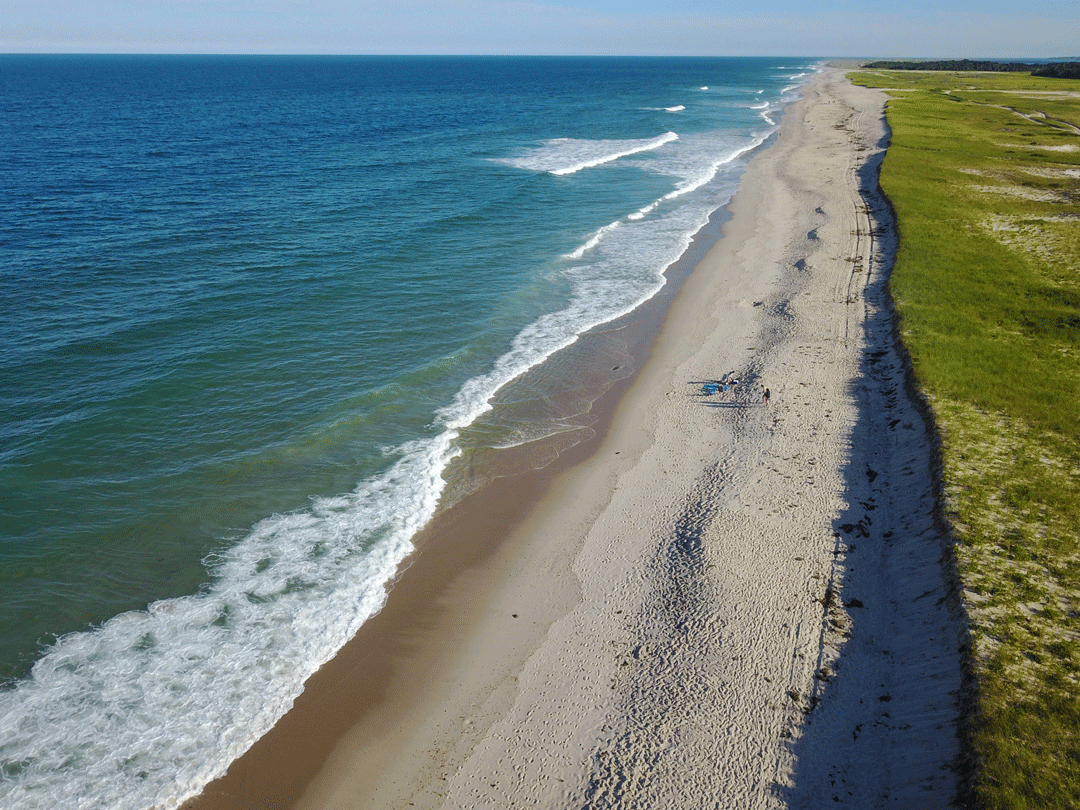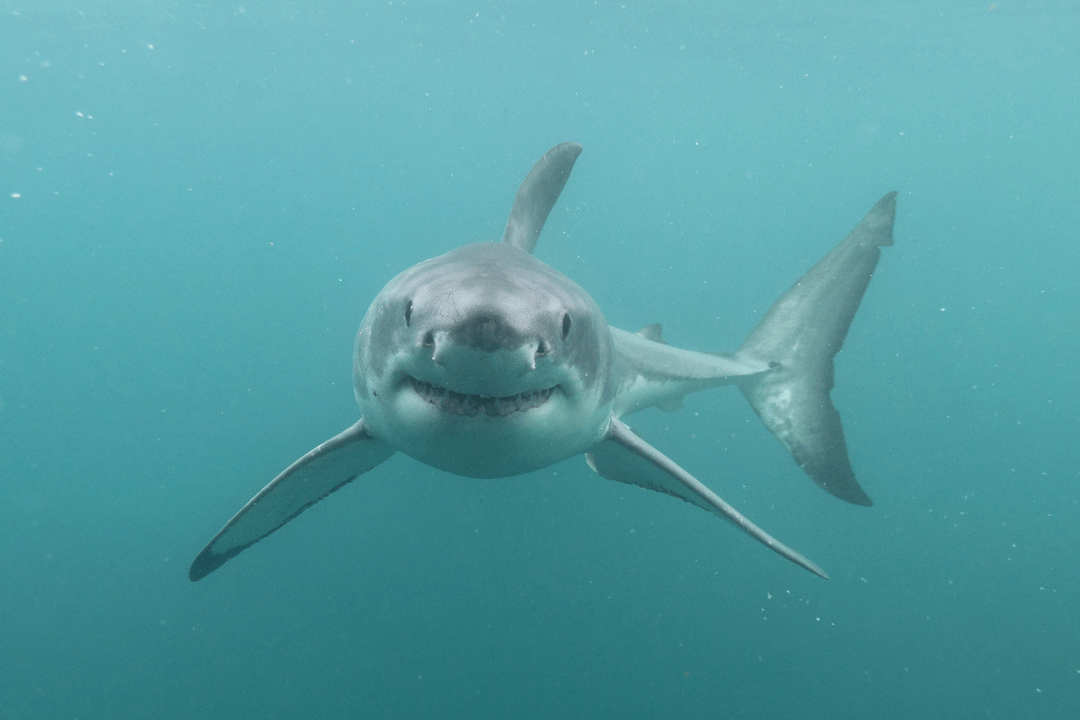White shark research starts strong on Cape Cod
In July, we started our white shark research off Cape Cod with a big bang. There was certainly no shortage of sharks throughout the month and we were able to tag 15 individuals with acoustic transmitters. This includes the first three white sharks ever tagged in Cape Cod Bay, where we expanded our research in response to growing reports of white sharks in that area. Since we started tagging white sharks off Cape Cod in 2009, we’ve never tagged so many in July – this was almost twice as many as our previous record of eight sharks tagged in July of 2017. This brings our total number of individual white sharks tagged to 171 since 2009.

Waves from the Atlantic Ocean wash against a scenic beach on Cape Cod, Massachusetts. This sandy peninsula is a popular summer vacation destination and is also known for its many white sharks. Photo © Ethan Daniels | Shutterstock
These tags are instrumental in helping us to better understand where and when white sharks prey upon gray seals, which occur in shallow waters throughout the region. Each time one of our tagged sharks swims within the range (about 200 meters) of one of our acoustic receivers, it is detected by the receiver and the date and time are logged. With more than 100 acoustic receivers along the beaches of Cape Cod and beyond, we are now really well equipped to examine white shark movement patterns as they relate to environmental conditions, the presence of seals, and human recreational activities. Each transmitter has a life expectancy of ten years, so we will be able to follow the movements of these individuals for many years to come.
I am also really excited to report that we deployed acceleration data loggers along with the acoustic transmitters on two of the white sharks tagged in July. These highly sophisticated tags not only have built-in video cameras, but also collect really fine-scale behavioural data, like tailbeat frequency, body posture, and swimming depth, at sub-second intervals. This gives us the most detailed picture of the minute to minute behaviour of white sharks ever seen in the Atlantic. These data loggers stay on for up to a few days, detach from the shark, and float to the surface. It’s one thing to get them out, while it’s another to get them back. I’m happy to report that both were retrieved and we are now pouring over the thousands of data points and video.
Basically, using both the acoustic tags and the acceleration data loggers, we are learning not only where the sharks spend their time, but also what they are actually doing. This allows us to examine patterns in predatory behaviour that are indicative of when, where, and how white sharks hunt their prey in the shallows of Cape Cod. We’re hoping that this information will help us to improve public safety for the thousands of recreational waters users who live on and visit Cape Cod each year. Of course, it’s too early to draw any conclusions, but we are off to a great start and, with the financial help of the Save Our Seas Foundation, it’s shaping up to be a promising and productive field season!

Photo © Alessandro De Maddalena | Shutterstock
